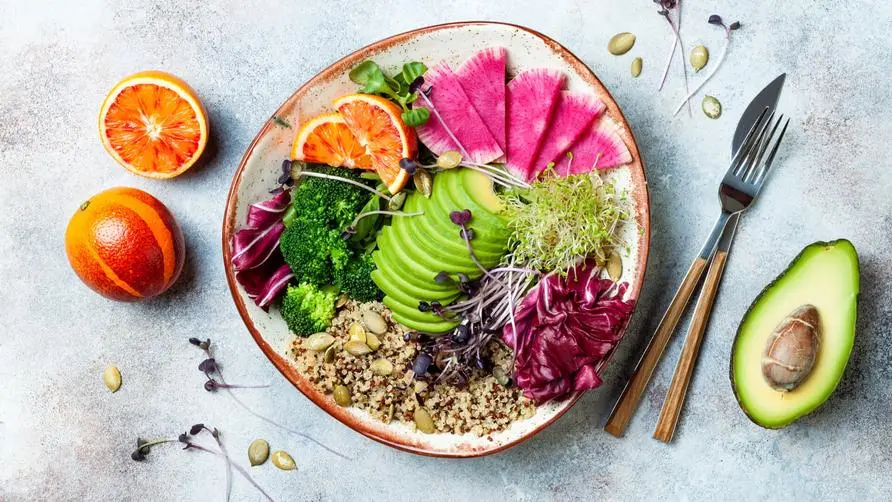What you need to know if you don't want to have a stroke or heart disease! Study: Eating more "plant-based diet" between 25 and 50 years old can reduce cardiovascular risk by up to 60%

17 million people die from heart disease every year. Can a plant-based diet reduce the risk?
Do you take care of your heart? Judging from long-term statistics, “cardiovascular disease” is more terrifying than the virus that everyone is currently hearing about. According to data from the World Health Organization, cardiovascular diseases cause 17 million deaths every year, accounting for 31% of global deaths. Among them, 7.4 million people die from heart disease and 6.7 million die from stroke, regardless of gender. , the number one killer that everyone should pay attention to regardless of age.
Is the incidence of heart disease and cardiovascular disease related to daily diet? The “Journal of the American Heart Association” published a new research report in August 2021. One of the data, which tracked 4,946 adults for 30 years, showed that those who consume a “plant-based diet” are more likely to suffer from the disease. The chance of cardiovascular disease was significantly reduced by 52%.
30-year follow-up data shows that young adults who eat healthily reduce their risk of heart disease by 60%
The research team conducted 8 physical tests on the respondents during the 30 years from 1985 to 2016, including biochemical numerical tests, medical history, lifestyle, etc., and used the Diet Quality Score (APDQS) to break down the three dietary patterns into 46 individual foods were analyzed together based on the respondents’ dietary scores and cardiovascular health status. These three dietary patterns are divided into:
“Healthy diet”: mainly fruits, vegetables, beans, nuts, and whole grains
“Bad diet”: such as fried potatoes, high-fat red meat, high-sodium foods, baked goods, sugary drinks
“Neutral diet”: potatoes, refined grains, lean meat, seafood, etc.
After 32 years of follow-up analysis, it was found that 289 participants suffered from cardiovascular disease (including heart disease, stroke, heart failure, blocked arteries). People who scored in the top 20% for long-term diet quality (meaning they consumed the most nutrient-dense plant foods and fewer unhealthy animal foods) had a 52% lower risk of cardiovascular disease.
What is even more noteworthy is that between the 7th and 20th years of the research process, that is, the age range of the respondents was between 25 and 50 years old. During this period, the group that consumed the most healthy food types was related to the group that increased the most. Compared with those who eat a poor health diet, the risk of cardiovascular disease is reduced by 61%.
Menopausal women can lower bad cholesterol by eating more plant-based foods
Yuni Choi, the leader of the study and a Ph.D. in epidemiology at the University of Minnesota School of Public Health, pointed out that although this statistic is an observational study, it cannot directly draw a causal link between a specific diet and cardiovascular events. relation.
However, research has divided “diet” and “score” in detail and minimized the differences in external factors to verify the benefits of healthy diet in preventing cardiovascular risks. In fact, the diet combinations with higher scores had many similarities to the “DASH diet” recommended for patients with high blood pressure, or the “Mediterranean diet” generally believed to be beneficial in preventing cardiovascular disease.
In addition, the “Journal of the American Heart Association” also published another study at the same time showing that postmenopausal women eat more nuts, plant-based protein (beans, tofu), water-soluble fiber (oats, okra, apples, blueberries, etc.) and units Unsaturated fatty acids can reduce the level of “bad cholesterol” LDL (low-density lipoprotein cholesterol).
Healthy eating does not have to be a vegetarian diet. Eat less saturated fat, red meat, sugary drinks.
The American Heart Association also recommends that adults eat a variety of fruits, vegetables, whole grains, low-fat dairy products, skinless poultry or fish, nuts, legumes, and vegetable oils. Instead, it’s best to limit your intake of saturated fat, trans fat, sodium, red meat, sweets, and sugary drinks.
Dr. Yuni Choi concluded that a nutritious, plant-based food diet is more beneficial to cardiovascular health. However, this diet does not necessarily mean that it is a vegetarian diet. It is recommended that the public choose more natural plant-based foods and reduce excessive consumption. Processed food intake. Animal foods such as non-fried poultry, fish, eggs, and low-fat dairy products can also be eaten in moderation.
The research team reminds that people can choose a variety of different foods in the “healthy diet” list to help reduce the risk of heart disease. And dietary modifications show a degree of “dose response.” Even if you add just one or two healthy foods, you can benefit your heart health by getting more nutrients.
Source:
Eating more plant foods may lower heart disease risk in young adults, older women





